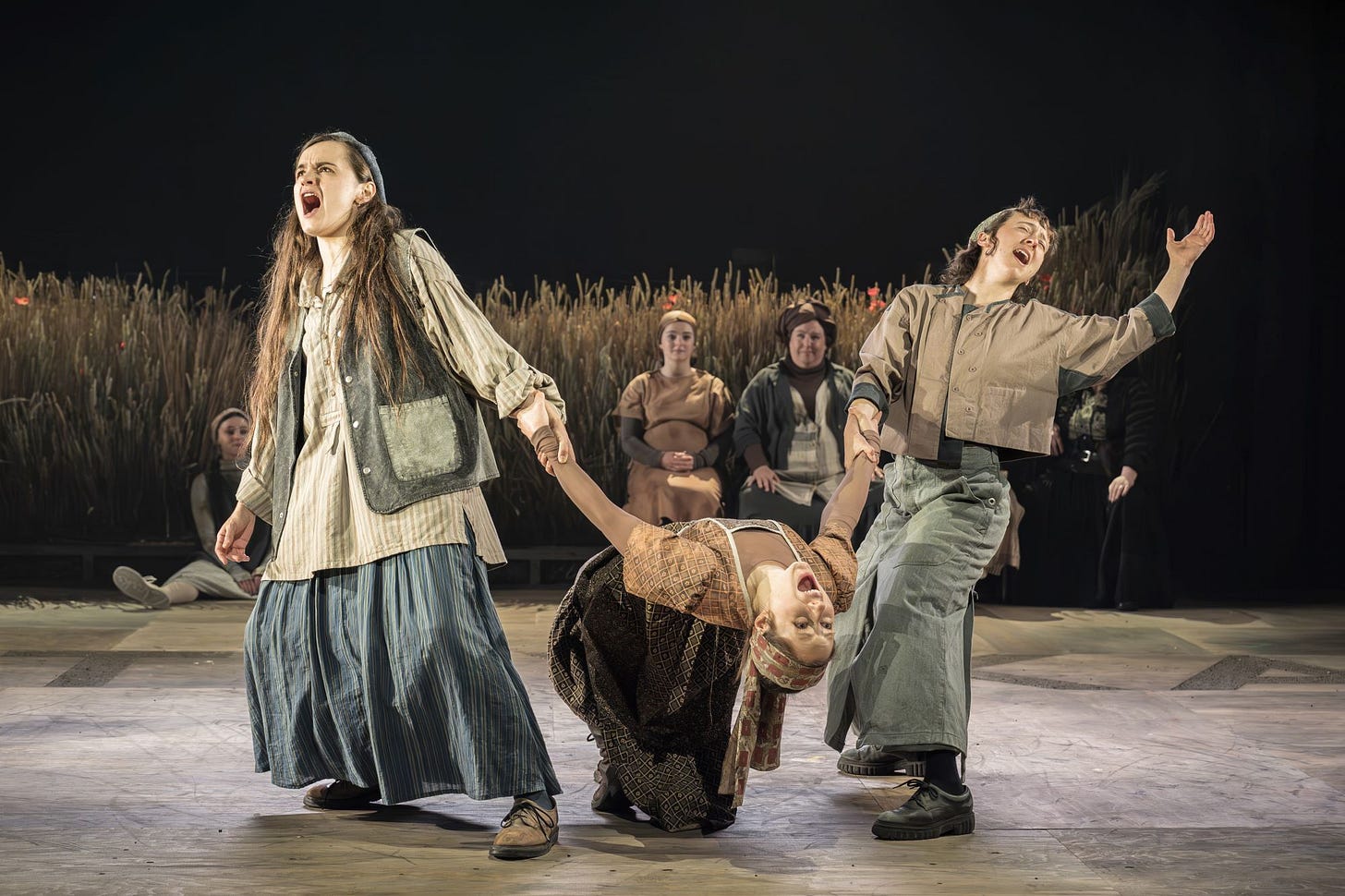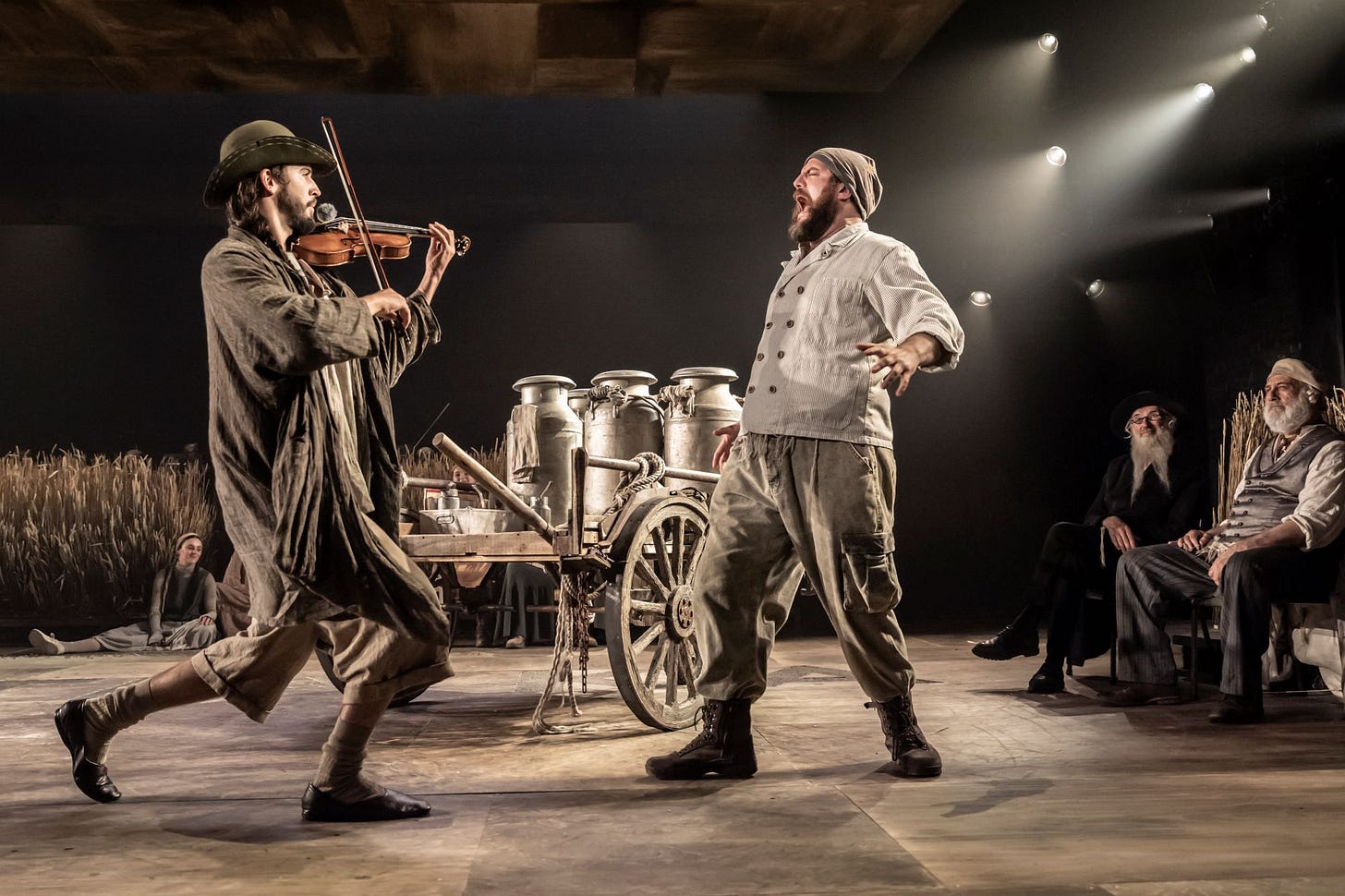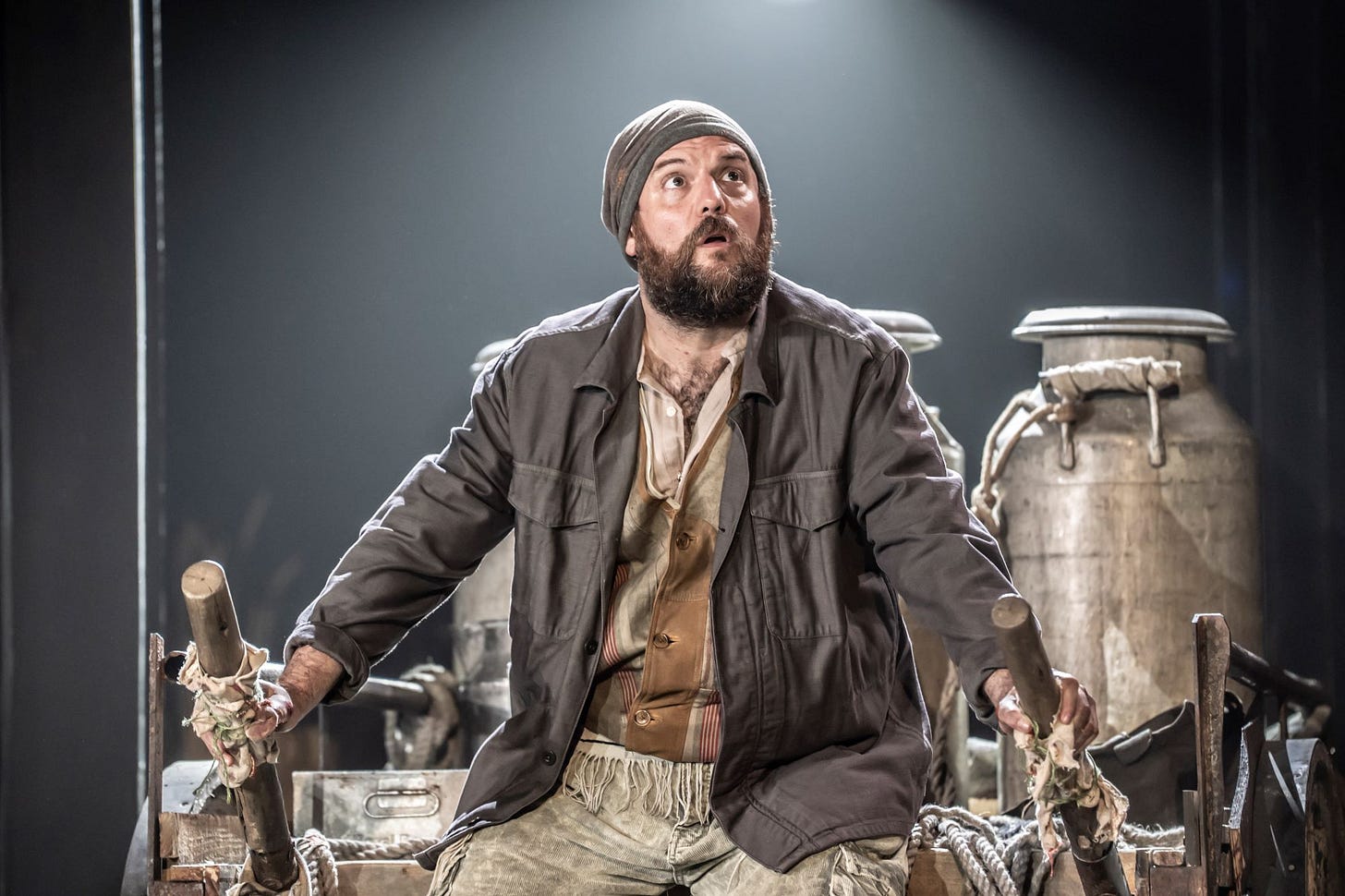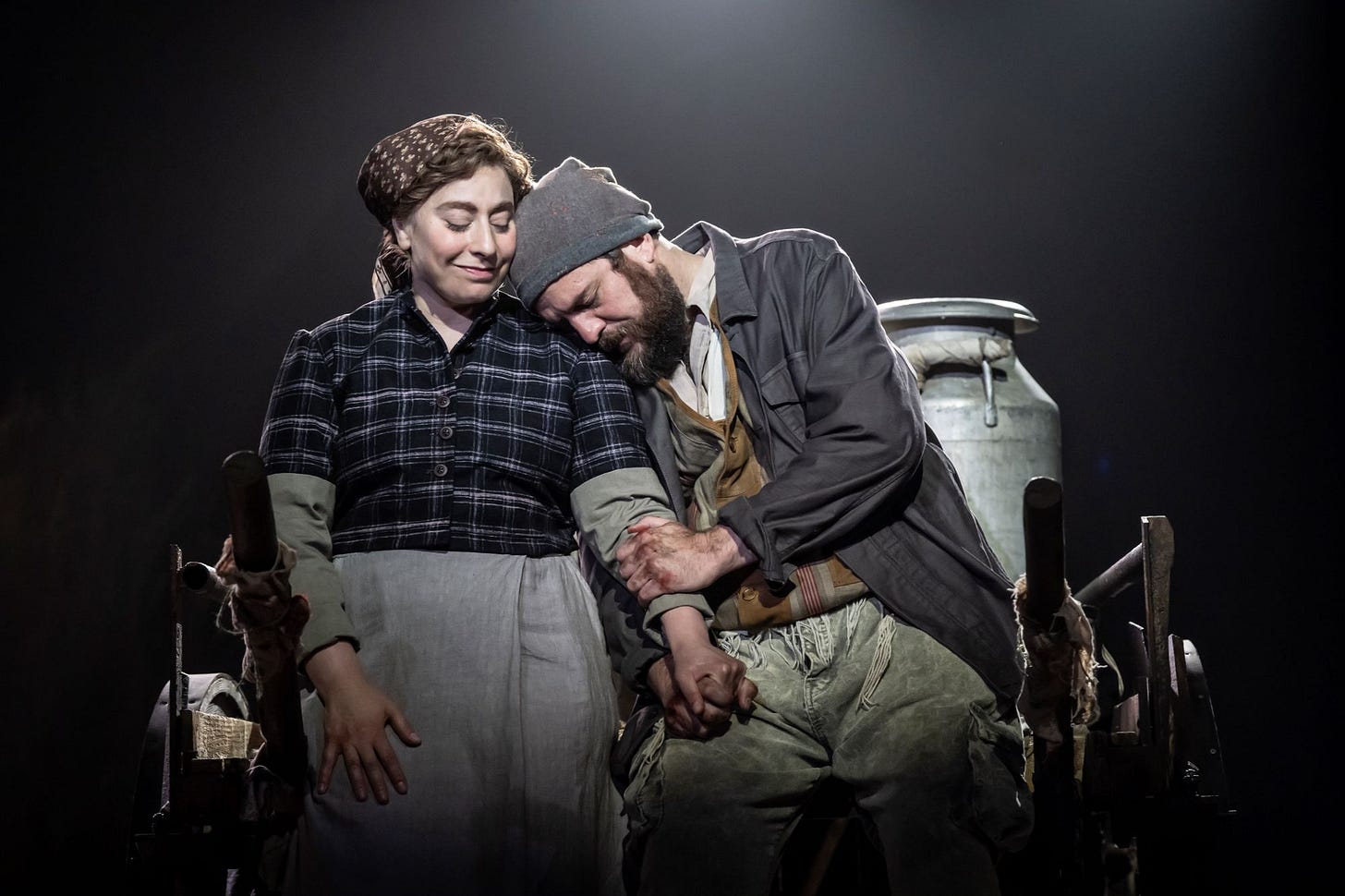REVIEW: Fiddler on the Roof at Sunderland Empire
Show that chimes with current concerns
The latest big musical on stage at the theatre that styles itself ‘The West End of the North East’ has no problem filling it.
With its mighty cast of actors, and with the musicians lined up at the back, it’s a populous affair – and will be playing, judging by Tuesday’s first night, to suitably large audiences.
But it begins, in accordance with its title, with full focus on the fiddler, a lean and rakishly attired country bumpkin, waist-high in grasses.
As he draws the first evocative notes from his violin, the scene rises so floor becomes roof… and so begins the epic story that’s to unfold, with Tevye, the village milkman, stepping forward to address us, and also the fiddler and God, with whom he will engage in one-sided banter throughout.
Back in 1994 I saw Topol (Chaim Topol, but always styled Topol) play the part of Tevye on this stage.
The Israeli actor came to Sunderland with a massive reputation, having performed the part hundreds – even thousands - of times on stage, and also in the 1971 film.
This latest Topol, Matthew Woodyatt, is Welsh and makes no secret of the fact, but that’s fine. He’s a charismatic performer with a versatile singing voice – both qualities showcased in his delivery of the show’s most famous number, If I Were a Rich Man.
The stage fills as Tevye’s fellow villagers file on in their muted country clothes (this is not a show that assails the eye with colour), singing the opening foot-stamping number, Tradition.
In the village (or Jewish shtetl) of Anatevka, a pinprick on the map of the Russian Empire in 1905, this is what governs their lives – but it’s a fragile thing, something of an illusion.
As we shall see, it’s vulnerable to the whims of the Tsar and, in Tevye’s household, to the emotions of his five headstrong daughters.
One by one, they challenge the idea that marriage is for parents to arrange, aided by Yente, village matchmaker and busybody.

Tzeitel, the eldest, loves a tailor so rejects the rich butcher more than twice her age. Hodel falls for an earnest student while Chava is charmed by – horror of horrors – a Gentile.
There’s a rich seam of humour in Tevye’s traditional outlook being constantly under strain. Inspired by the tales of Jewish writer Sholem Aleichem, this is a very human story.
In the touching duet with wife Golde, their own marriage having been arranged, Tevye asks repeatedly: “Do You Love Me?”
Eventually she supposes she must since they’ve been together 25 years.
But fear him? No. When he raises his voice in mock anger, she promises: “When we’ve had supper, I’ll faint.”
Jodie Jacobs gives us a wonderfully spirited Golde.
When Fiddler on the Roof premiered on Broadway in 1964 (where it became the longest-running musical until surpassed by Grease), some reviewers complained that it trivialised a tragic episode in history.
I got no sense of that here in Jordan Fein’s production, feeling it chimed with many current concerns.
The show makes no claim to a ‘happy ever after’, the villagers forced out by Imperial Russia and scattered to the four winds.
The number that best sums it up is the beautiful Sunrise, Sunset, a highlight of the show for me.
My only minor gripe – more of a question really – is why the show has to be quite so thunderously loud.
I know it’s a West End thing but I did at times find the volume detracting from the intimacy of the moment and distancing us a little from the characters.
The date 1907 is emblazoned across the proscenium arch. There would have been no equivalent amplification back then.
But Fiddler on the Roof, a lively affair with lots of musical subtleties, is justifiably a classic and it’ll be raising the roof here until Saturday, November 29.
Tickets from the Sunderland Empire website.





